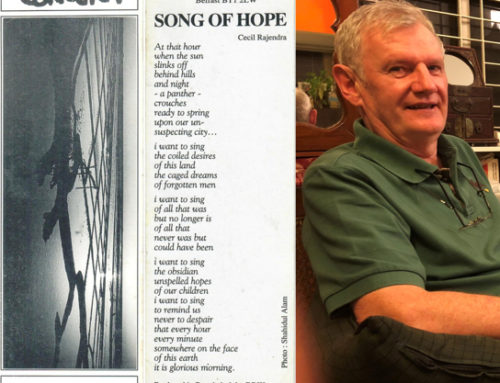“We asked each team to develop a toilet that would destroy human waste or convert it into a valuable resource such as fuel or fertilizer. The toilet would have to operate “off the grid”—without connections to water, sewer, or electrical lines. The cost to operate it needed to be less than 5 cents per user, per day. And people would have to want to use it—ideally not only in poor countries but wealthy ones too.”
August 23, 2012
This was the brief given to applicants of Reinvent the Toilet Challenge initiated by the Water, Sanitation & Hygiene programme of Bill & Melinda Gates Foundation in 2011. The mission of this challenge: To bring sustainable sanitation solutions to more than 2.5 billion people worldwide.
From drinking a glass of water made from treated human waste to bringing a jar of human poop to the recent Reinvented Toilet Expo in China, Bill Gates has done it all to raise awareness about the problem. Such acts may seem outrageous to some, but the world needs such commitment as we are running out of time. Today, 4.5 billion people live without a safe toilet and 892 million people still practise open defecation. A single gram of human feces can contain 10 million viruses and one million bacteria, but in most countries of the global south, human faeces, on a massive scale, is not being treated safely. In such a situation, untreated human feces gets into our food chain and degrades ecosystems. To make this crisis worse, extreme weather events which include unprecedented droughts and floods pose a major risk to our fragile sanitation systems.
The good news is, Bill Gates belongs to a rare club of philanthropists with a profound commitment to bring sustainable sanitation to those who don’t have access to it. Financially, this commitment has translated into more than $200 million investments from the Gates Foundation over the last seven years and he plans to invest more to bring these solutions to the mainstream.
The ‘Reinvented Toilets’
At the recent Reinvented Toilet Expo in Beijing, a range of companies from around the world came together to display a new generation of non-seweredsanitation solutions that could eliminate harmful pathogens and convert human feces into viable by-products – clean water, fuel and fertilizer.In this expo, Indian companies such as, Eram Scientific, Ankur Scientific and Tide Technocrats displayed their reinvented toilets and small-scale waste treatment plants, which are now ready for sale to municipal and private entities.Some of the winning innovations around the globe which have been funded by the Reinvented Toilet Challenge are:
- California Institute of Technology, USA: CalTechh as developed a self-contained, solar-powered toilet and wastewater treatment system. A solar panel produces enough power for an electrochemical reactor that is designed to break down water and human waste. Excess power can be stored to provide energy for night-time operation or for use under low-sunlight conditions.
- Cranfield University, UK: Cranfield developed a prototype toilet that removes water from human waste and vapourizes it using a hand-operated vacuum pump and a unique membrane system. The remaining solids are turned into fuel that can also be used as fertiliser. The water vapour is then condensed and can be used for washing, or irrigation.
- Loughborough University, UK: The team from Loughborough University has been developing a toilet that transforms feces into biological charcoal (biochar) through hydrothermal carbonization (decomposition at high temperatures in water without oxygen) of fecal sludge. The system will be powered from heat generated by combusting the biochar and will recover water and salts from the feces and urine it produces.
To most of us, these innovations sound like expensive gadgets from science fiction movies. Even Bill Gates admits “it will be at least a decade” before the reinvented toilets reach tens of millions of people in the poorest areas, and they will have to prove both practical and economical.
Which brings us to an important fact. Hardware innovations are not enough to ensure universal sanitation.
CLTS: A proven approach from the global south
While admitting that there has been limited hardware innovations in the sanitation sector, we have to keep in mind that ‘software’ i.e. behaviour change approaches are important for adoption and ownership of toilets. One of the most successful approaches is Community-Led Total Sanitation (CLTS), whichhas been rolled out in more than 70 countries worldwide. Itis one of the most successful approaches in the development sector with roots in the global south. Pioneered by Dr Kamal Kar in Bangladesh, CLTS is an innovative approachfor empowering communitiesto completely eliminateopen defecation. It focuses on igniting a change in collective sanitation behaviour, which is achieved through a process of collective local action stimulated by facilitators from within or outside the community. As an approach, CLTS has proved that with the right ‘triggers’ and enabling environment communities will take charge and build their own toilets.
The core philosophy of CLTS is : ‘no human being, rich or poor, wants to live in shit’. Affordable reinvented toilets which can be deployed at scale will be successful if they get this basic philosophy right. The Indian story till now has demonstrated that investing millions through a top-down hardware approach to end open defecation is bound to result in failure.There are hopes that Swachh Bharat Mission might have succeeded in building a sanitation movement among the masses, but building toilets for every household is not enough, communities should continue using these toilets without slipping back to old habits.
Thus, reinvented toilets could play a major role when communities which have lived without access to basic sanitation climb up the sanitation ladder and are ready to adopt these new technologies. However, private companies, NGOs, national and local governments which are/will be involved in rolling out these reinvented toilets must keep in mind that only a toilet that is ‘desired’ will be a toilet used and ‘owned’.
References:
Bill Gates: Complete speech from Reinvented Toilet Expo in Beijing
https://www.gatesfoundation.org/Media-Center/Speeches/2018/11/Reinvented-Toilet-Expo
Water, sanitation & hygiene: Reinvent the toilet challenge fact sheet
https://docs.gatesfoundation.org/Documents/Fact_Sheet_Reinvent_the_Toilet_Challenge.pdf







Leave A Comment